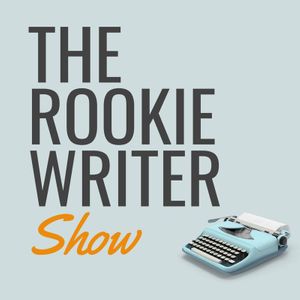Episode 024: Making the Most of Your Writing Time
The Rookie Writer Show - A podcast by H. Dair Brown, The Rookie Writer Show Host

Categories:
If you listened to last week, you know that we’re trying to get our productivity systems on point in readiness for National Novel Writing Month. We kicked things off by going through the process of carving out time for this challenge. This week, we’re going to look at ways to make the most out of that time. Think of it as sort of an expanded remix on #1 from last week: “Finding Your Writing Zone.”
Almost 20 years ago, four researchers of the National Writing Project of Acadiana in Louisiana published a study on writing rituals. They studied over one hundred writers of all types, across a wide range of ages and experience levels. They found that “regardless of sex, nationality, genre, or age, rituals are an integral part of a writer’s creative process.”
While some of the rituals were more compulsive or eccentric than others, all of them helped the writers to:*Decrease writing related anxiety,*Increase a sense of control over their writing efforts, and*Improve their writing.“Who, What, When, and Where of Writing Rituals.” (The Quarterly, Vol. 24, No. 4)
Sound like something you might like to add to your writing life? Helpful, right?! So how can you find the best ritual(s) for you and your writing career? My answer is to “Get Meta.”
Merrian-Webster defines “Meta” as “showing or suggesting an explicit awareness of itself or oneself as a member of the category: cleverly self-referential. That’s not exactly what I mean. What I’m really referring to is “meta-analysis,” but their definition of that (“a quantitative statistical analysis of several separate experiments or studies in order to test the pooled data for statistical significance”) is enough to put you to sleep.
I think that, believe it or not, the Urban Dictionary actually does a better job. Taking a break from listing the most unsettling things that humans can come up with, the Urban Diction defines meta this way: “Meta means about the thing itself. It’s seeing the thing from a higher perspective instead of from within the thing, like being self-aware.”
Gabriela Periera, the mastermind behind all things DIY MFA and a personal hero to me, says the following when she talks about the importance of this process, which she refers to in a larger way as “iteration.”
When you iterate and test out different aspects of your writing process, it pushes you to become a more mindful writer. Mindfulness and meditation are techniques that I’ve been exploring, both in my writing life and my real life over the years. The idea of mindfulness is to become aware of your mind–to observe your thoughts and where they go– but then to be able to let them go.When you practice iteration in your writing process, it makes you more aware of your habits: both what works and what doesn’t. As you iterate and observe your habits, you’ll become better able to shape your process and become a more effective and productive writer.When you iterate and test your process, it pushes you to adopt a meta-view of your writing. This creates a certain distance between you and your work, distance that can help you gain a more objective perspective about your project.https://diymfa.com/writing/more-productive-writer
Writers’ rituals often involve more than one of these four valuables. To make the most of your writing time, get meta about them to discover your current optimal mix of circ...